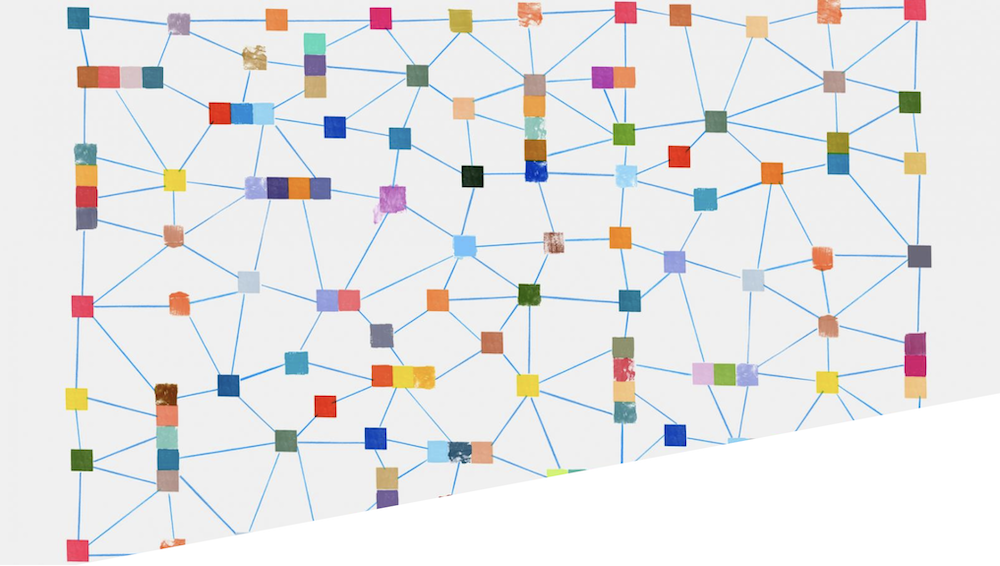Research Sprint Explores Cooperative Approaches to Data Ownership and Governance

Researchers and practitioners from around the world investigate the design and dilemmas of data trusts and cooperatives and how they can help communities.
The New School’s Platform Cooperativism Consortium and Harvard University’s Berkman Klein Center for Internet & Society are launching a Fall 2021 Research Sprint this week with a cohort of early-career researchers, cooperative leaders, and activists from 8 countries across 4 continents. The “Alternative Data Futures: Cooperative Principles, Data Trusts, and the Digital Economy” Research Sprint brings together this group to explore new pathways for democratic governance of collective data.

Around the world, a growing number of governments, businesses, and citizen collectives are turning toward data trusts, data cooperatives, and data collaboratives as possible answers for responsible, commons-oriented data management. A data trust is a legal entity that collects and manages personal information on behalf of its members. In cooperative or public data trusts, for example, privacy can be better protected, public services can be enhanced, and groups that are underserved by regulation can benefit. Although many questions about the functioning of data trusts are still under development, they represent a promising alternative.
Participants in the Research Sprint will examine existing data cooperatives and explore the data needs of the communities that cooperatives serve, asking questions such as: How can the histories of the various forms of cooperatives inform the structure of cooperative data trusts? Across a range of sectors, including health, fisheries, and social media, what kinds of challenges do data trusts help to address and how do communities benefit? Participants will investigate difficult social, legal, and technological problems linked to community ownership and data governance with the help of world-renowned experts on the data economy and platform cooperatives.
From advancing research in this emerging field to actively generating community-facing projects, the ultimate aim of this sprint is to benefit the global ecosystem of platform co-ops by envisioning concrete ways in which cooperative principles can be applied to participatory data governance.
Participants

Ana Aguirre Uriz
Spain
Mondragon Unibertsitatea

Elettra Bietti
Italy/United States
Harvard Law School

Adriane Clomax
United States
University of Southern California

Noah DiAntonio
United States
Harvard College

Ander Etxeberria
Spain
TAZEBAEZ; Travelling University

Megan Kelleher
Australia
RMIT University

Morshed Mannan
Bangladesh/Italy
European University Institute

Kelsie Nabben
Australia
RMIT University

Sadev Parikh
United States
Georgetown University Law Center; Harvard Kennedy School

Novita Puspasari
Indonesia
Monash University Australia

Sadhana Sanjay
India
IT for Change

Janis WONG
United Kingdom
University of St Andrews
Designed and implemented by Trebor Scholz, Elisabeth Sylvan, Valerie Gomez, and Adam Nagy, Alternative Data Futures: Cooperative Principles, Data Trusts, and the Digital Economy is the most recent sprint in an ongoing series that connects early career scholars and other professionals to broader networks of experts, supporting them to learn and work collaboratively on emerging technology policy issues. This initiative was originally founded by Humboldt Institute for Internet and Society (HIIG), the Berkman Klein Center (BKC), and Digital Asia Hub (DHA) in collaboration with the Global Network of Internet & Society Centers (NoC). Previous sprints include a HIIG sprint on The Ethics of Digitalisation – From Principles to Practices, a BKC sprint on COVID-19 and Access to Education and Learning Spaces, a DHA and BKC sprint on Digital Self-Determination, and a BKC AI Policy Research Clinic with the City of Helsinki.
(Header image by The Laundry Room licensed from Stocksy, an artist-owned platform co-op.)